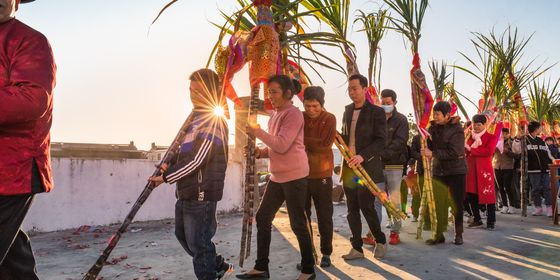An online art exhibition calls attention to the infamous “chained woman” case in eastern China, despite repeated censorship
In early February, when he heard news that his 2007 independent film Blind Mountain was once again being widely pirated around file-sharing and illegal streaming sites in China, director Li Yang decided not to sue. “I should be charging copyright fees,” the 62-year-old filmmaker wrote on WeChat, “but in order to save trafficked women in China and fight the evil of human trafficking, I won’t. Everyone is welcome to forward and watch [the film].”
The 15-year-old film about human trafficking, which was shortlisted at Cannes, was back in the public eye due to a real-life horror that mirrored the plot of the movie: While livestreaming about a man with the surname Dong, who had eight children and lived in a village in Fengxian county in the city of Xuzhou, Jiangsu province, a group of vloggers accidentally found the mother of these children chained inside a shed behind the family home, with only thin clothes to protect her against the cold.
The discovery of this woman, believed to be a victim of human trafficking and struggling with mental illness, prompted others to come forward with stories about female trafficking in Fengxian and other regions of China, with hashtags related to the incident becoming some of the most hotly discussed topics across social media platforms. The topic has generated an estimated 5.2 billion views on microblogging site Weibo at the time of writing, second only to the Winter Olympics.













